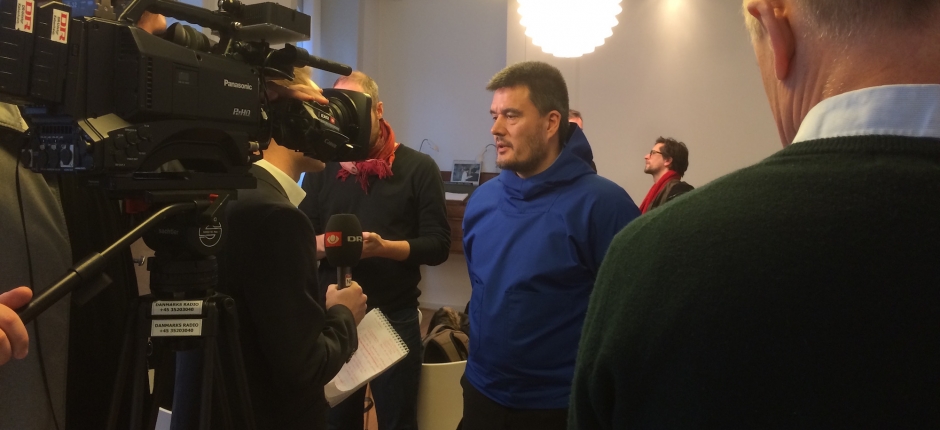Greenland’s premier becomes embroiled in a row over roe
The national assembly will investigate whether Kim Kielsen had a conflict of interest when he voted in favor of raising lumpfish quotas.

In 2014, Kim Kielsen, then standing for election to become Greenland’s premier, sought to illustrate to voters how he would create jobs by drawing on the example of lumpsucker roe. Greenlandic fishermen, he explained, are paid 20 kroner ($3) for a kilogram of the caviar-like substance. After being processed by firms outside of Greenland, the roe retails for 400 kroner per kilogram.
His pledge to voters was that he would make it more attractive for businesses to process fish products locally, through things like tax cuts, so Greenland could harvest the benefits of the markup.
Kielsen, who won that election and has since presided over a series of uneasy alliances, is now finding his political future again tied to lumpfish roe, after it emerged last week that he rented a fishing boat to a close friend just two weeks before the national assembly voted, amidst heated debate, to raise the amount fishermen could land during the current season.
[Greenland’s two largest parties have headed their separate ways]
The opposition, which brought the situation to light, suggests that Kielsen had a conflict of interest at the time of the vote, and should not have been involved in the deliberations, or at least spoken up about the situation.
Kielsen has held a commercial fishing license and has faced down similar allegations in the past. He is adamant there is no case this time around either; for it to have been a conflict of interest, he agues, he would have needed to have been the one doing the fishing, or he would have needed to have known the person using his boat was going to fish for lumpfish.
He admits to renting his boat to the friend, but says he was acting in good faith; his friend’s boat was not seaworthy at the time, and the friend had done Kielsen a similar favor in the past. Nor was the amount Kielsen received — 27,000 kroner, only half the going rate — worth risking a scandal over. The amount was just enough to cover Kielsen’s costs for the boat during the period, he has explained.
[Greenlandic premier avoids election, despite failing to secure majority]
Whether this is enough to prove he was not placing his own interests first will now be up to the national assembly’s oversight committee, which announced on Friday that it would look into the matter and pass its recommendation on to the full assembly for a vote.
Legal experts reckon that, according to the letter of the law, Kielsen indeed did have a conflict of interest, but they suggest the modest amount he received could be an extenuating circumstance that ultimately gets him off with a slap on the wrist.
Ultimately, however, the decision will be made by Kielsen’s fellow members of the national assembly. Despite holding a majority in the assembly, a vote in his favor is not certain; his party is known to be fractious, and the assembly itself is chaired by one of Kielsen’s rivals for their party’s leadership — though Kielsen has survived more serious challenges to his leadership in the past.